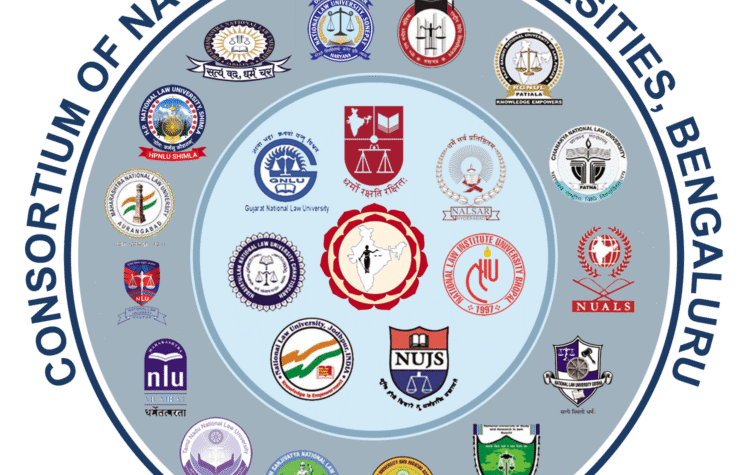

Pursuing a Master of Laws (LLM) is a significant decision for law graduates aiming to specialize, deepen their legal expertise, or transition into academia or high-level legal practice. In India, National Law Universities (NLUs) are often the go-to institutions for legal education, but not all NLUs are created equal. While top-tier NLUs like NLSIU Bangalore, NALSAR Hyderabad, WBNUJS Kolkata, and NLIU Bhopal have established themselves as premier destinations for legal studies, many Tier 3 NLUs fall short in delivering the value and opportunities an LLM demands. This article explores why pursuing an LLM from a Tier 3 NLU is generally a poor choice and why opting for top-tier NLUs is a better investment of time, money, and effort.
1. Academic Excellence and Faculty Quality
Top-tier NLUs like NLSIU Bangalore, NALSAR Hyderabad, WBNUJS Kolkata, and NLIU Bhopal boast exceptional academic environments driven by highly qualified faculty, many of whom are globally recognized scholars, practitioners, or alumni of prestigious institutions. These institutions emphasize research-driven learning, with faculty members actively contributing to legal scholarship through publications, policy advocacy, and consultancy. For instance, NLSIU Bangalore is renowned for its rigorous academic culture, with professors who have shaped landmark legal reforms and judicial decisions in India.
In contrast, Tier 3 NLUs often struggle with faculty shortages, less experienced professors, and limited research output. Many of these institutions rely on visiting or adjunct faculty, which can lead to inconsistent teaching quality and a lack of mentorship crucial for an LLM program. The academic rigor at Tier 3 NLUs may not match the standards required for specialized legal education, leaving students with a superficial understanding of their chosen field.
2. Reputation and Brand Value
The reputation of an institution plays a critical role in the legal profession, where pedigree often influences job prospects and networking opportunities. Top NLUs like NLSIU, NALSAR, WBNUJS, and NLIU carry significant brand value, both domestically and internationally. Their alumni networks include Supreme Court judges, senior advocates, partners at top law firms, and influential policymakers, enhancing the credibility of their LLM graduates.
Tier 3 NLUs, on the other hand, lack the same level of recognition. Employers, particularly top law firms, corporate houses, and academic institutions, often prioritize candidates from established NLUs due to their proven track record. An LLM from a Tier 3 NLU may not open the same doors, limiting career prospects and diminishing the return on investment for the degree.
3. Infrastructure and Resources
Top-tier NLUs are equipped with state-of-the-art infrastructure, including well-stocked libraries, access to global legal databases (like Westlaw, HeinOnline, and LexisNexis), and modern facilities for research and learning. For example, NLSIU Bangalore’s library is one of the best in South Asia, offering extensive resources for specialized legal research, which is critical for LLM students working on dissertations or projects.
Tier 3 NLUs often face challenges like outdated libraries, limited access to digital resources, and inadequate infrastructure. These shortcomings can hinder research, a core component of an LLM program, and leave students ill-equipped to compete in a research-intensive field. Additionally, top NLUs frequently host international conferences, moot courts, and seminars, exposing students to global legal trends—opportunities that are rare at Tier 3 institutions.
4. Specializations and Curriculum
LLM programs at top NLUs offer a wide range of specializations, such as Constitutional Law, Corporate Law, Intellectual Property Law, International Law, and Human Rights Law, tailored to meet industry and academic demands. These institutions regularly update their curricula to reflect emerging legal trends, such as data privacy, environmental law, or international arbitration. For instance, NALSAR Hyderabad is known for its cutting-edge courses in business law and intellectual property, aligning with the needs of global law firms and corporations.
Tier 3 NLUs, however, often offer limited specializations due to faculty constraints and resource limitations. Their curricula may be outdated or overly general, lacking the depth required for advanced legal practice or academia. This can leave graduates unprepared for niche roles in the legal market, where specialization is increasingly valued.
5. Placements and Career Opportunities
One of the primary reasons to pursue an LLM is to enhance career prospects, whether in litigation, corporate law, academia, or public policy. Top NLUs have robust placement cells with strong ties to leading law firms (like Cyril Amarchand Mangaldas, Shardul Amarchand Mangaldas, or AZB & Partners), international organizations, and academic institutions. For example, WBNUJS Kolkata has a stellar placement record, with graduates securing roles in top-tier firms and international arbitral institutions.
Tier 3 NLUs, by contrast, often lack dedicated placement support for LLM students. Their industry connections are weaker, and their graduates may struggle to secure high-paying or prestigious roles. Many Tier 3 NLU alumni end up in roles that do not justify the time and financial investment of an LLM, such as low-paying litigation or local law firms with limited growth potential.
6. Networking and Alumni Support
The legal profession thrives on networks, and top NLUs provide unparalleled opportunities to connect with influential alumni, guest lecturers, and peers. For instance, NLIU Bhopal hosts events like the Virudhaka moot court and legal aid clinics, which attract legal luminaries and provide networking platforms. Alumni from top NLUs are often willing to mentor current students, offering guidance on career paths, research opportunities, or clerkships.
Tier 3 NLUs have smaller, less influential alumni networks, limiting students’ exposure to industry leaders and mentors. This gap can significantly impact long-term career growth, as networking is often as critical as academic credentials in the legal field.
7. Research Opportunities and Academic Exposure
An LLM is often a stepping stone to a career in academia or research. Top NLUs like NLSIU and NALSAR have dedicated research centers (e.g., NLSIU’s Centre for Environmental Law or NALSAR’s Centre for Corporate Law and Governance) that provide funding, mentorship, and publication opportunities. These institutions also encourage students to present papers at national and international conferences, enhancing their academic profiles.
Tier 3 NLUs typically lack such research ecosystems. Students may struggle to find funding, guidance, or platforms to publish their work, limiting their ability to build a strong academic portfolio. This is a significant drawback for those aiming for careers in legal academia or policy research.
8. Cost-Benefit Analysis
Pursuing an LLM is a costly endeavor, with tuition fees, accommodation, and other expenses adding up quickly. Top NLUs, despite their higher fees, offer a strong return on investment due to their reputation, placements, and career opportunities. For example, an LLM from NLSIU Bangalore, while expensive, often leads to high-paying corporate jobs or academic positions that justify the cost.
Tier 3 NLUs, while sometimes cheaper, do not provide comparable returns. The lack of placements, limited networking, and weaker academic outcomes mean that the investment may not translate into proportional career benefits, making it a financially risky choice.
9. Admission Process and Peer Group
Admission to top NLUs is highly competitive, often requiring a strong CLAT PG score, rigorous interviews, and a solid academic background. This ensures a high-caliber peer group, which fosters intellectual growth and collaboration. For instance, at NALSAR Hyderabad, LLM students are exposed to peers with diverse legal experiences, enriching classroom discussions and group projects.
Tier 3 NLUs, with less stringent admission criteria, may have a more varied peer group in terms of academic preparedness. This can dilute the learning experience, as the quality of peer interaction is crucial in a postgraduate program like an LLM.
Conclusion
Choosing where to pursue an LLM is a decision that can shape your legal career. While Tier 3 NLUs may offer the convenience of an NLU tag, they often fall short in delivering the academic rigor, career opportunities, and networking potential required for a successful legal career. Top-tier NLUs like NLSIU Bangalore, NALSAR Hyderabad, WBNUJS Kolkata, and NLIU Bhopal, with their superior faculty, infrastructure, and industry connections, provide a far better platform for aspiring legal professionals or academics. Investing in an LLM from these institutions is more likely to yield long-term dividends, making them the preferred choice for serious law graduates. If you’re considering an LLM, aim for the best—your future self will thank you for it.

























































